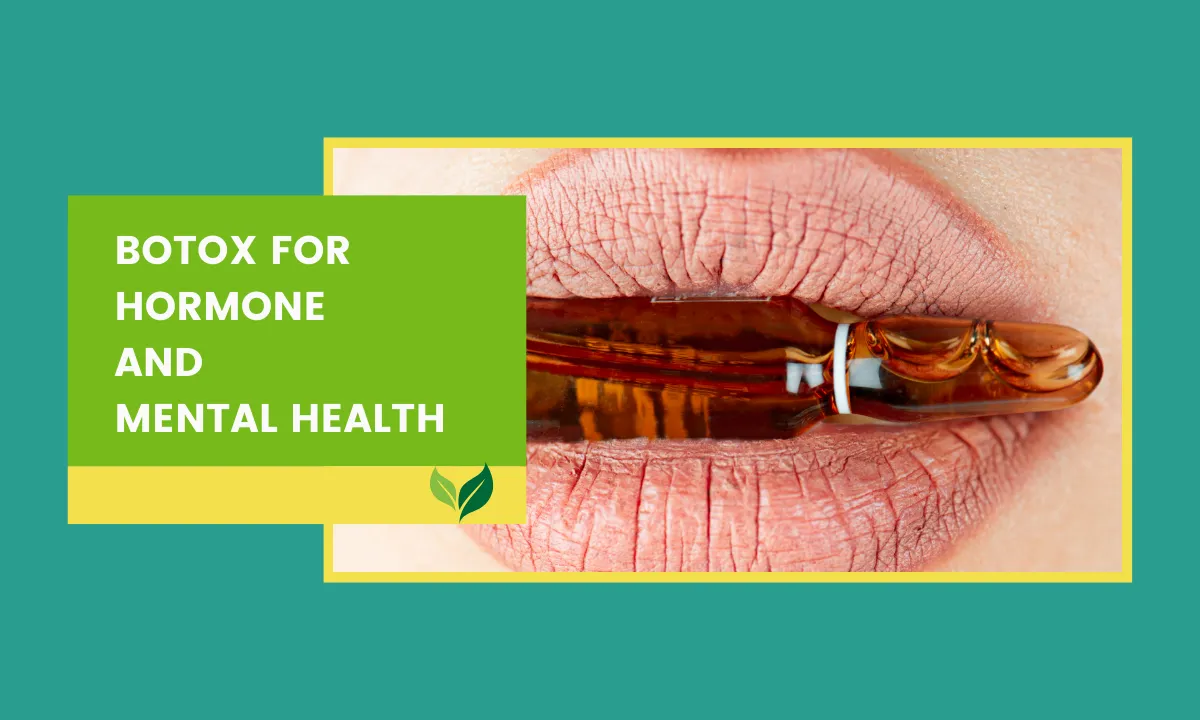
The Beauty Of Botox For Natural Mental Health & Hormone Regulation
When it comes to anti-aging treatments, Botox is one of the most common and widely trusted. But Botox is also showing promising signs in the preventive medicine world for mental health wellness/improvement.
While it may seem strange to consider Botox a “natural remedy” for things like hormone-balance, anti-aging, depression, and anxiety, it certainly isn’t “un-natural” and it fits perfectly with other integrative and preventive medicine protocols like Ketamine Therapy, hormone replacement therapy, and IV vitamin-mineral hydration therapy.
So, what is this versatile product you ask? Botox is a neurotoxin (the bacteria that causes botulism, actually) and works by attaching itself to nerve endings. Once the neurotransmitter responsible for triggering muscle contractions is connected with this bacteria, it can’t be released, which means the wrinkle-causing muscle is now in a relaxed state.
While this is wonderful cosmetically for reducing fine lines and wrinkles around the eyes and face, it also inadvertently helps to stop the hormone production that’s caused by grumpy, frowning facial movements.
“For years, clinicians have observed that Botox injected for cosmetic reasons seems to ease depression for their patients,” said Ruben Abagyan, PhD, professor of pharmacy. “It’s been thought that easing severe frown lines in forehead region disrupts a feedback loop that reinforces negative emotions. But we’ve found here that the mechanism may be more complex, because it doesn’t really matter where the Botox is injected.”
While there is no single treatment that works for everyone, Botox can be a valuable addition to an integrative and holistic treatment plan. Though it is primarily used as a cosmetic therapy, it is important to consider the potential benefits that Botox and other neuromodulators may have for those suffering from treatment-resistant anxiety and/or depression, as well as other conditions for which Botox could bring about positive results. It’s essential to speak with your primary care physician and/or mental health providers first to explore whether this may be an option in your specific circumstance.
OK, so it’s helpful for skin and could aid in positive mental health, but what else is Botox used for?
There are many other reasons that some doctors prescribe Botox for therapeutic purposes. It’s been a popular and effective remedy for chronic migraine headaches, TMJ (pain and compromised movement of the jaw) and other types of muscle pain.
Because Botox blocks nerve activity in your muscles, it can prevent unnecessary muscle use as well, so for people who suffer from severe underarm sweating, urinary incontinence, or even an overactive bladder can benefit from getting Botox injections.
The doctor who prescribes Botox for medical reasons will vary depending on your condition. Neurologists, ophthalmologists, dermatologists, ENTs (ear, nose and throat doctors), urologists, and urogynecologists are common medical Botox providers. Always look for a doctor who is board certified in his or her specialty.
Is Botox covered by insurance?
We wondered when you might ask if Botox is covered by your insurance plan! You’ll need to check with your insurance provider and speak with your doctor to be sure, but it’s not uncommon that Botox for medical reasons (ie: not cosmetic) will be covered by insurance. The FDA has approved it for various conditions and it’s incredibly effective.
Is Botox expensive?
When you receive Botox, it is measured in units, and you will typically pay about $12 to $25 per unit. Most people spend about $150 - $300 every 3-6 months for Botox facial units. This is an incredibly affordable preventive procedure, especially when compared to surgical procedures or luxury skin care products.
If you’re reaping the mental health benefits of Botox as well, then this may help to bring down the cost of things like Ketamine Therapy and hormone replacement. Botox is so versatile that most people find they can create a customizable treatment option with their doctor that fits their budget.
How long does getting Botox take?
Botox injections are an excellent option for both therapeutic and cosmetic procedures because they are non-invasive and fast. The entire procedure only takes a few minutes to complete, and you’re able to return to your normal day-to-day activities with zero down-time.
The treatment generally lasts about 3 months, though it can last up to 6 months depending on what’s being treated and the schedule you’ve set up with your doctor or provider. Maintaining regular treatments is important when used for either preventive or therapeutic reasons as the effects of Botox do wear off over time.
Are there complications with Botox?
When the procedure is performed by an experienced doctor, complications from Botox are extremely rare. There are a few things to look out for ahead of time, however, says Dr. William Lipham MD, FACS, of Bloomington Minn:
“Patients should not receive Botox if they have a neuromuscular disorder, if they are taking aminoglycoside antibiotics, which cause an increased sensitivity to the drug, or if they are pregnant, trying to conceive or breast-feeding. In addition, patients with egg allergies may have an increased likelihood of an allergic reaction since the Botox molecule is stabilized by human albumin, a protein that is similar to egg albumin.”
Botox and its indications for use have come a long way since 1989 when it was first FDA approved for the treatment of blepharospasm and cervical dystonia, conditions concerning the muscles around the eye. It’s long history of safety and efficacy make Botox worth exploring, even within a natural or holistic treatment plan.
If you’re wondering if it’s right for you or how it may improve your physical and/or mental health, please speak with your doctor or reach out to us directly to learn more.
